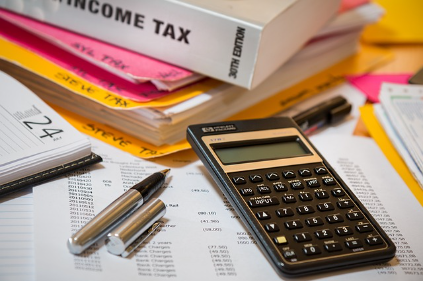현재 장바구니가 비어 있습니다!

[2024-08-05 Korea Economic News] KOSPI Falls Below 2600 Mark Amid Fears of U.S. Economic Recession: Two Consecutive Days of Plummeting Trading
KOSPI Index Plummets Amid U.S. Economic Concerns
In recent days, the KOSPI index has experienced significant turbulence as fears of a potential economic downturn in the United States have taken hold. Over the last two trading days, the index has seen a sharp decline, breaching the crucial 2600-point mark. This fluctuation has raised alarm bells among investors, especially following reports regarding the U.S. job market.
KOSPI Index and U.S. Economic Downturn
The recent surge in concerns regarding the U.S. economy’s stability has largely been driven by conflicting labor statistics. Despite the increase in non-farm jobs, there has been an unsettling rise in unemployment rates, which have led to amplified fears of a potential recession. This combination of factors has caused foreign investors to react decisively, resulting in a widespread sell-off in the Korean stock market.
The KOSPI, representing the benchmark stock index in South Korea, has historically reacted to shifts in the global economic landscape, particularly those originating from the U.S. When the U.S. economy shows signs of strain, global markets often feel the repercussions. Analysts suggest that the recent plunge of the KOSPI may reflect a broader global sentiment, where investors are seeking to mitigate risks in an unpredictable market environment.
![[2024-08-05 Korea Economic News] KOSPI Falls Below 2600 Mark Amid Fears of U.S. Economic Recession: Two Consecutive Days of Plummeting Trading](https://walterlog.net/wp-content/uploads/2024/08/1700288432.7443504.png)
Recent economic reports indicate that while the average number of jobs added in the U.S. has been positive, the simultaneous rise in the unemployment rate casts a shadow over any optimistic outlook. The labor market’s dual indicators have created a climate of uncertainty, evoking memories of past financial crises that stemmed from similar economic signals. As we have seen, such uncertainties lead to volatility in markets worldwide, and the KOSPI is no exception.
Foreign Investment and Market Dynamics
The behavior of foreign investors is a significant factor to consider when discussing the KOSPI’s recent performance. With the heightened fears surrounding the U.S. economic landscape, foreign investment in the Korean market has turned bearish. The sell-off from foreign investors not only exacerbates the downward pressure on the KOSPI but also contributes to a more extensive narrative about the need for strategic economic maneuvering within Korea itself.
It’s crucial for policymakers and market analysts alike to focus on these shifts in foreign investment trends. The KOSPI, being a reflection of South Korea’s overall economic health, may require interventions that can restore confidence among both local and foreign investors. This might involve adjustments in fiscal policy or other measures aimed at stabilizing the market and curbing the downward trend caused by external economic pressures.
![[2024-08-05 Korea Economic News] KOSPI Falls Below 2600 Mark Amid Fears of U.S. Economic Recession: Two Consecutive Days of Plummeting Trading](https://walterlog.net/wp-content/uploads/2024/08/1700288479.9746268.png)
Analysts urge caution as the KOSPI continues to navigate this tumultuous economic period fueled by global uncertainties. The relationship between the KOSPI and external economic conditions emphasizes the interconnectedness of today’s markets. As efforts are made to construct a resilient financial environment, Korea Economic News indicates that sustaining investor confidence is paramount for economic growth and stability in the face of potential U.S. downturns.
The Broader Implications for the Korean Market
The implications of the KOSPI’s decline extend beyond immediate market reactions. It serves as a reminder of the fragility that can exist within international markets, especially when affected by another country’s economic decisions. For South Korea, the focus must not only be on recovery but also on developing strategies to prepare for future shocks that could arise from external economic events.
Korea Economic News has reported on potential measures that the government might implement to stabilize the economy. These could include economic stimulus packages aimed at bolstering domestic demand and supporting vital industries. However, all plans need to be carefully calibrated, taking into consideration the evolving global economic scenario, particularly events stemming from the United States.
![[2024-08-05 Korea Economic News] KOSPI Falls Below 2600 Mark Amid Fears of U.S. Economic Recession: Two Consecutive Days of Plummeting Trading](https://walterlog.net/wp-content/uploads/2024/08/1699579541.1955752-1.png)
The KOSPI’s recent struggle starkly highlights the unpredictable nature of today’s financial markets. As we move forward, careful monitoring of economic indicators both locally and internationally will be essential in guiding investment decisions. Investors are encouraged to stay informed about ongoing developments in the U.S. and their potential impacts on global markets, particularly the KOSPI.
In summary, the recent events surrounding the KOSPI index illustrate a critical intersection of local and global economic factors. As South Korea continues to navigate these turbulent waters, staying informed through platforms like Korea Economic News will provide valuable insights for stakeholders and the general public alike.
For further updates and in-depth analysis, visit https://walterlog.net to explore more comprehensive economic news and trends.